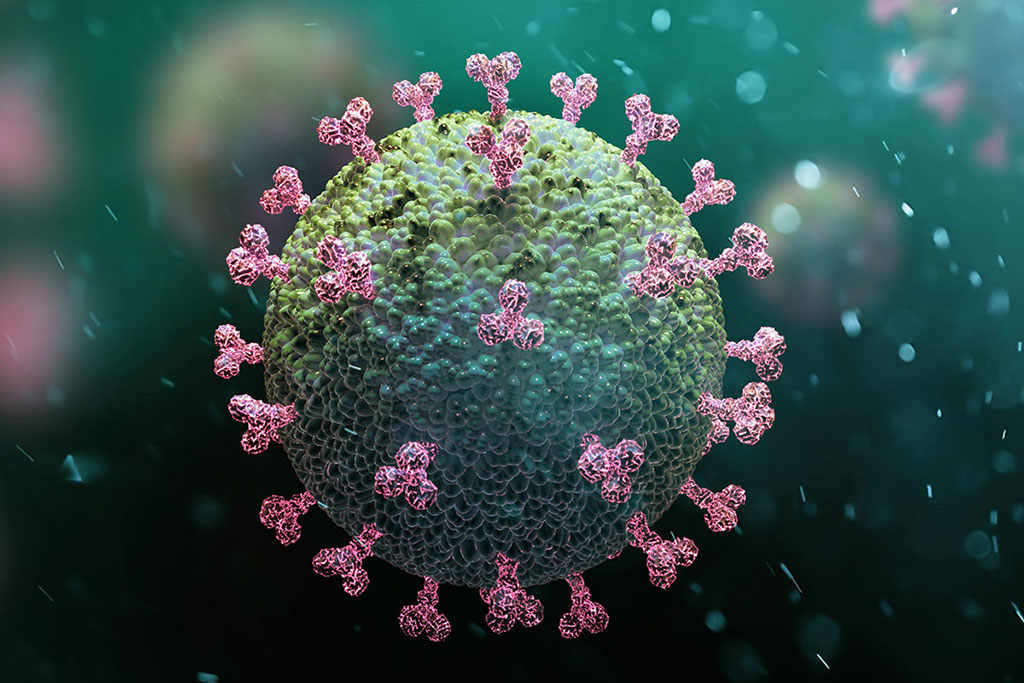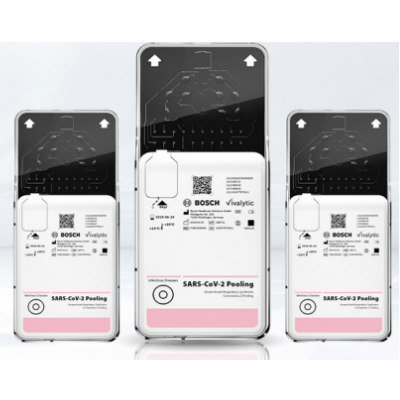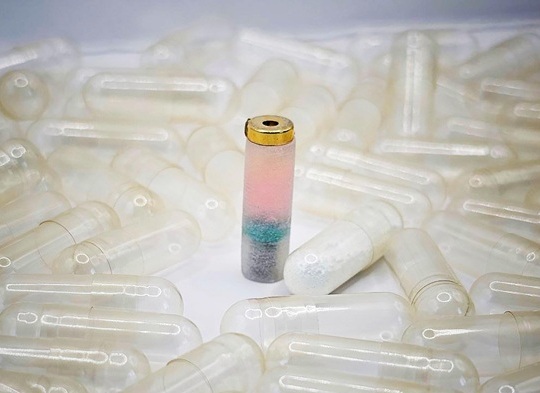World's First Paper-Based COVID-19 Test Could Be Game-Changer for Coronavirus Testing
|
By HospiMedica International staff writers Posted on 15 Oct 2020 |

Illustration
An inexpensive paper-based COVID-19 test that could give fast results similar to a pregnancy test can become a game-changer for coronavirus testing.
Researchers at the CSIR-Institute of Genomics and Integrative Biology (IGIB New Delhi, India) have developed the world's first paper-based COVID-19 test that uses cutting-edge CRISPR (Clustered Regularly Interspaced Short Palindromic Repeats) technology for detection of genomic sequence of the novel coronavirus. The technology was conceived and developed under a sickle cell mission and utilizes an indigenously developed cutting-edge CRISPR-Cas9 technology to specifically recognize COVID-19 sequence in a sample. A combination of CRISPR biology and paper-strip chemistry leads to a visible signal readout on a paper strip that can be rapidly assessed for establishing the presence of the viral infection in a sample. The test, named Feluda - an acronym for FNCAS9 Editor-Limited Uniform Detection Assay - after a famous Indian fictional detective, would return results in under an hour and cost less than USD 7.
Feluda is expected to address the urgent need for accurate mass testing because of its affordability, relative ease of use and non-dependency on expensive qPCR (quantitative polymerase chain reaction) machines. Feluda is being brought out of the lab and made available for wide use by a leading Indian conglomerate, Tata Sons, which has signed an MoU with CSIRIGIB to license the know-how. The MoU with Tata Sons allows for scaling up this knowhow in the form of a kit that can be deployed for testing on ground.
“This innovative ‘Feluda’ test uses cutting-edge CRISPR technology for detection of genomic sequence of the novel coronavirus. It uses a test protocol that is simple to administer and easy to interpret, enabling results to be made available to the medical fraternity in relatively lesser time as compared to other test protocols,” said Banmali Agrawala, president, Infrastructure and Defence and Aerospace, Tata Sons. “We believe that CRISPR is futuristic technology that can also be configured for detection of multiple other pathogens in the future.”
Related Links:
CSIR-Institute of Genomics and Integrative Biology (IGIB)
Researchers at the CSIR-Institute of Genomics and Integrative Biology (IGIB New Delhi, India) have developed the world's first paper-based COVID-19 test that uses cutting-edge CRISPR (Clustered Regularly Interspaced Short Palindromic Repeats) technology for detection of genomic sequence of the novel coronavirus. The technology was conceived and developed under a sickle cell mission and utilizes an indigenously developed cutting-edge CRISPR-Cas9 technology to specifically recognize COVID-19 sequence in a sample. A combination of CRISPR biology and paper-strip chemistry leads to a visible signal readout on a paper strip that can be rapidly assessed for establishing the presence of the viral infection in a sample. The test, named Feluda - an acronym for FNCAS9 Editor-Limited Uniform Detection Assay - after a famous Indian fictional detective, would return results in under an hour and cost less than USD 7.
Feluda is expected to address the urgent need for accurate mass testing because of its affordability, relative ease of use and non-dependency on expensive qPCR (quantitative polymerase chain reaction) machines. Feluda is being brought out of the lab and made available for wide use by a leading Indian conglomerate, Tata Sons, which has signed an MoU with CSIRIGIB to license the know-how. The MoU with Tata Sons allows for scaling up this knowhow in the form of a kit that can be deployed for testing on ground.
“This innovative ‘Feluda’ test uses cutting-edge CRISPR technology for detection of genomic sequence of the novel coronavirus. It uses a test protocol that is simple to administer and easy to interpret, enabling results to be made available to the medical fraternity in relatively lesser time as compared to other test protocols,” said Banmali Agrawala, president, Infrastructure and Defence and Aerospace, Tata Sons. “We believe that CRISPR is futuristic technology that can also be configured for detection of multiple other pathogens in the future.”
Related Links:
CSIR-Institute of Genomics and Integrative Biology (IGIB)
Latest COVID-19 News
Channels
Critical Care
view channel
AI Heart Attack Risk Assessment Tool Outperforms Existing Methods
For decades, doctors have relied on standardized scoring systems to assess patients with the most common type of heart attack—non-ST-elevation acute coronary syndrome (NSTE-ACS). The GRACE score, used... Read more
'Universal' Kidney to Match Any Blood Type
Blood-type incompatibility has long been one of the greatest obstacles in organ transplantation, forcing thousands of patients—particularly those with type O blood—to wait years longer for compatible donors.... Read moreSurgical Techniques
view channel
Minimally Invasive Endoscopic Surgery Improves Severe Stroke Outcomes
Intracerebral hemorrhage, a type of stroke caused by bleeding deep within the brain, remains one of the most challenging neurological emergencies to treat. Accounting for about 15% of all strokes, it carries... Read more
Novel Glue Prevents Complications After Breast Cancer Surgery
Seroma and prolonged lymphorrhea are among the most common complications following axillary lymphadenectomy in breast cancer patients. These postoperative issues can delay recovery and postpone the start... Read morePatient Care
view channel
Revolutionary Automatic IV-Line Flushing Device to Enhance Infusion Care
More than 80% of in-hospital patients receive intravenous (IV) therapy. Every dose of IV medicine delivered in a small volume (<250 mL) infusion bag should be followed by subsequent flushing to ensure... Read more
VR Training Tool Combats Contamination of Portable Medical Equipment
Healthcare-associated infections (HAIs) impact one in every 31 patients, cause nearly 100,000 deaths each year, and cost USD 28.4 billion in direct medical expenses. Notably, up to 75% of these infections... Read more
Portable Biosensor Platform to Reduce Hospital-Acquired Infections
Approximately 4 million patients in the European Union acquire healthcare-associated infections (HAIs) or nosocomial infections each year, with around 37,000 deaths directly resulting from these infections,... Read moreFirst-Of-Its-Kind Portable Germicidal Light Technology Disinfects High-Touch Clinical Surfaces in Seconds
Reducing healthcare-acquired infections (HAIs) remains a pressing issue within global healthcare systems. In the United States alone, 1.7 million patients contract HAIs annually, leading to approximately... Read moreHealth IT
view channel
Printable Molecule-Selective Nanoparticles Enable Mass Production of Wearable Biosensors
The future of medicine is likely to focus on the personalization of healthcare—understanding exactly what an individual requires and delivering the appropriate combination of nutrients, metabolites, and... Read moreBusiness
view channel
Philips and Masimo Partner to Advance Patient Monitoring Measurement Technologies
Royal Philips (Amsterdam, Netherlands) and Masimo (Irvine, California, USA) have renewed their multi-year strategic collaboration, combining Philips’ expertise in patient monitoring with Masimo’s noninvasive... Read more
B. Braun Acquires Digital Microsurgery Company True Digital Surgery
The high-end microsurgery market in neurosurgery, spine, and ENT is undergoing a significant transformation. Traditional analog microscopes are giving way to digital exoscopes, which provide improved visualization,... Read more
CMEF 2025 to Promote Holistic and High-Quality Development of Medical and Health Industry
The 92nd China International Medical Equipment Fair (CMEF 2025) Autumn Exhibition is scheduled to be held from September 26 to 29 at the China Import and Export Fair Complex (Canton Fair Complex) in Guangzhou.... Read more
















